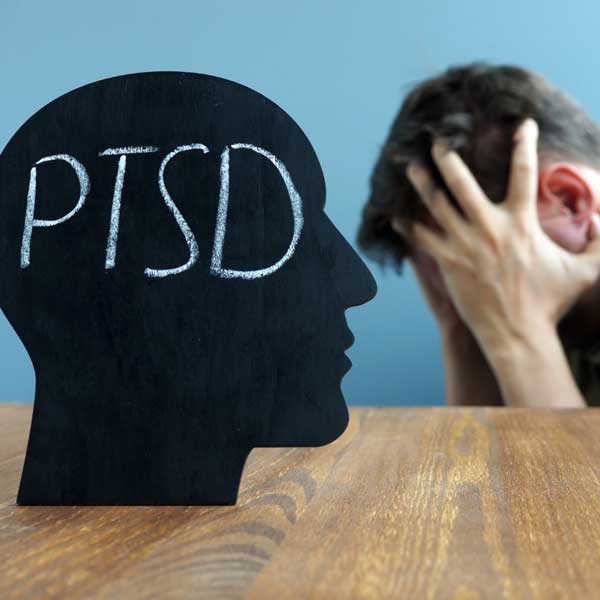The COVID-19 pandemic has created a variety of significant challenges for people worldwide. Many of us are now dealing with social isolation in a way we never have before, financial insecurity, a lack of structure to our daily routines, and an uncertain future; all of which can take a serious toll on our mental health. Depression and anxiety are among the two most talked about mental health conditions connected to the pandemic and rates have increased 17.8% and 17.4% respectively, since 2019. And for many of us who already had a pre-existing mental health condition, we are experiencing an increase in our symptom frequency and/or severity. Unfortunately, I can’t say I’m surprised about the link between depression or anxiety and the pandemic but it makes me wonder about how the pandemic has affected other mental health conditions, like post-traumatic stress disorder.
There is no doubt that certain groups of people have developed post-traumatic stress disorder (PTSD) as a direct result of the COVID-19 pandemic such as those themselves who suffered from COVID-19 illness and potential death, individuals who have witnessed others’ suffering and death and/or learned about the death or potential death of a family or friend due to the virus, and people who experienced extreme exposure to aversive details such as first responders, healthcare workers and journalists, among others, but what happens to the individuals who were diagnosed with PTSD pre-COVID-19 pandemic and thought they already overcame their PTSD or at least had it well under control?
Many people with PTSD pre-COVID-19 pandemic are finding that the pandemic stressors have triggered their symptoms and coping strategies such as going out to dinner with friends, watching movies with family, or playing sports may no longer be an option thus further exacerbating PTSD symptoms.
People with PTSD pre-COVID-19 pandemic may find that they are experiencing more reminders of their personal trauma. The U.S. Department of Veterans Affairs explains that hearing people talk about the pandemic as if we are fighting a war, or like we are in a battle with an invisible enemy may bring up uncomfortable feelings and memories. And for those whose trauma involved difficulty breathing, wearing masks, or seeing others wear masks may not only remind them of their traumatic event, but could result in a flashback, where they are genuinely re-living the traumatic experience and in that moment, cannot distinguish between the flashback and reality.
Even though everyone has health and safety concerns related to COVID-19, individuals with pre-existing PTSD may have concerns that are more intense and frequent in comparison. They may now be avoiding other people more than usual or be extremely worried about getting the virus. Places that were once safe pre-pandemic may now cause anxiety and the urge to avoid being in open public places may be stronger than ever. All of this can result in feeling more tense than usual, even about things unrelated to COVID-19. The additional worry and stress brought on by the pandemic may make it more challenging to focus and cause difficulties falling or staying asleep.
Negative thoughts and feelings about yourself, other people, or the world are common for individuals with PTSD and the current pandemic could certainly exacerbate these beliefs. Having thoughts such as, “No one can be trusted to do the right thing anymore” or “The world is completely dangerous” may be more pronounced thus making it harder to see other ways of thinking about it. Other feelings like anger and irritability may be intensified by the pandemic if the activities once used to help blow off steam are no longer available. And the increased time at home and lack of normal routine may cause these individuals to have a shorter fuse with loved ones or others in their household.
Perhaps you found yourself identifying with this reading thus far or know someone who it could relate to and are now thinking, “but what can I do about it? How can I help myself or others?” Either seek treatment or encourage others to do so! There are different treatment options available from medication options to different forms of psychotherapy, many of which are now offered virtually. Reaching out for help is a great first step. Additionally, finding meaningful and enjoyable activities can improve your mood and safely connecting with family and friends can help foster a strong support system. Implementing self-care practices such as keeping a routine, maintaining a good sleep schedule and eating healthy can help decrease stress levels. Lastly, be kind to yourself and proud of how far you’ve come.
To learn more about options at Segal Trials, visit our Enrolling Stuides.


